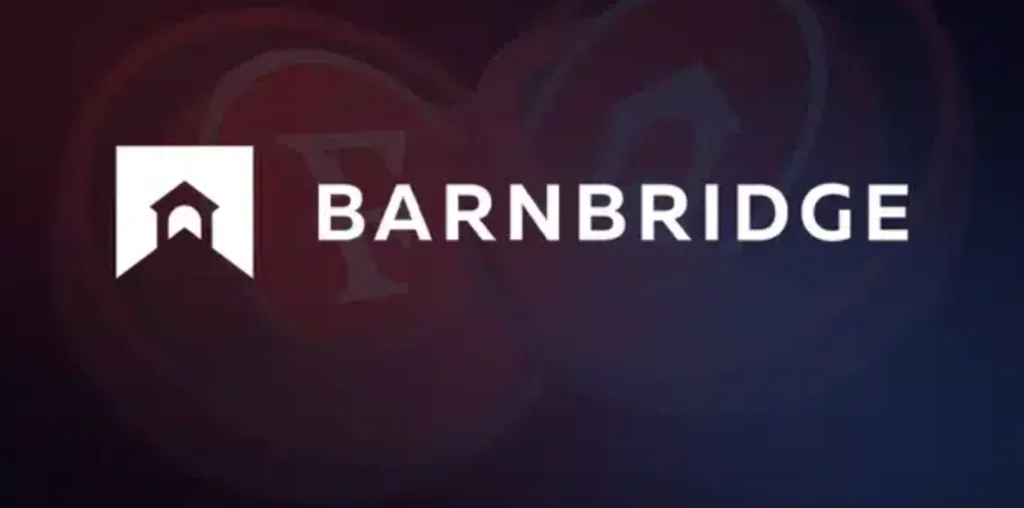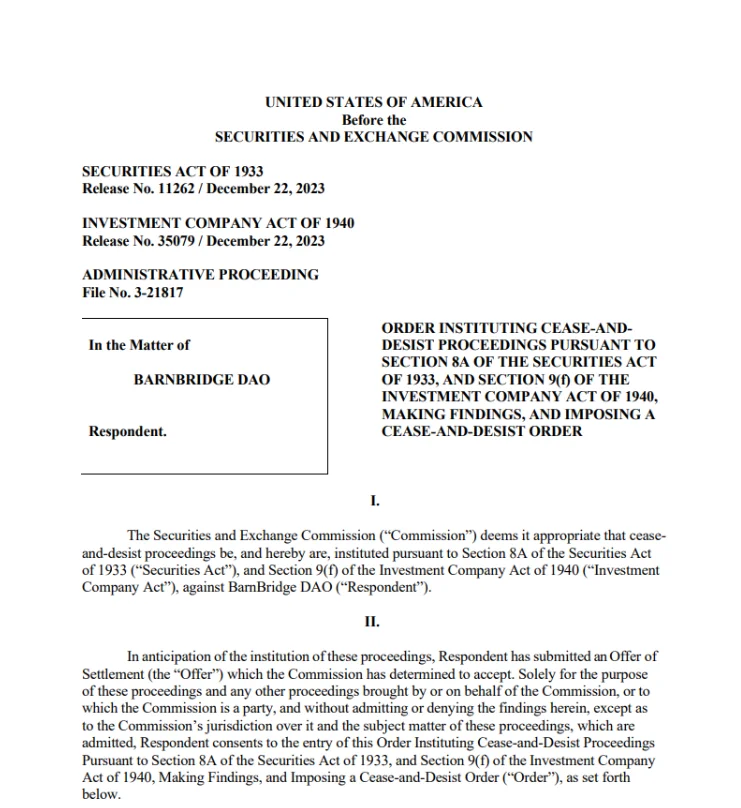BarnBridge’s governing body has agreed to pay $1.4 million, and its two founders will each pay a civil penalty of $125,000 as settlement to the SEC as both have settled and agreed to cease the “unregistered offer and sale of structured finance crypto product.

The United States Securities and Exchange Commission (SEC) and the governing body for the decentralized finance (DeFi) protocol, BarnBridge, have settled and agreed to cease the “unregistered offer and sale of structured finance crypto product,” the financial regulator announced on December 22. The agency has issued a cease and desist order to pursue the enforcement action.

BarnBridge enabled users to “obtain a fixed return on their deposits through the exchange of variable annual percentage yields (APYs) from money markets for a fixed APY,” as per its present documents.
BOND, the governance token of the protocol, was initially issued as an incentive for liquidity providers to Uniswap pools, as stated in the Barnbridge documents’ earliest archival version.
The BarnBridge decentralized autonomous organization (BarnBridge DAO), comprised of all BOND token holders, is the entity that lodges the SEC enforcement action against individual holders.
BarnBridge DAO and its founders, Tyler Ward, and Troy Murray, allegedly advertised “SMART Yield Bonds,” a structured investment product that paid investors a fixed rate of return from a pool of assets known as a “SMART Yield Investment Pool,” in their cease and desist order. To obtain the rate of return, the investment pools exchanged their investors’ assets for assets carrying a yield from “third-party lending platforms.”
The revenue generated was subsequently allocated among investors in the “Senior” and “Junior” tranches. The SEC stated that senior investors were assured a fixed rate of return, whereas junior investors received a variable rate.
If the rate of return failed to meet the complete obligations of the Senior tranches of investors, the Junior tranche assets were utilized as compensation for the Senior investors.
Conversely, those junior tranche investors received the surplus revenue if the rate of return exceeded what was required to pay senior investors. Thus, the protocol ensured that senior investors received a fixed rate of return while permitting junior investors with a higher risk tolerance to profit more during periods of increased revenue.
About BarnBridge
A smart contract known as the “BarnBridge DAO Treasury” received 5% of the proceeds invested in SMART Yield Bonds as a fee from BarnBridge DAO, as per the order.
The DAO voted to allocate these treasury funds for various business expenses during the protocol’s operation, including blockchain transaction fees, website hosting fees, programmer contracts, and Ward and Murray’s salaries.
The agency asserted that the SMART Yield Investment Pools are “Unregistered Investment Companies” according to the U.S. Investment Company Act and are, as such, obligated to undergo registration with the SEC. BarnBridge DAO, according to the SEC, is the “operator” of these pools and was, as such, obligated to conduct this registration on their behalf.
The SEC has mandated BarnBridge DAO to remit a disgorgement of $1.4 million to the U.S. Treasury out of the funds it has accumulated in its treasury, as stated in the announcement. Additionally, it has mandated that Ward and Murray remit civil penalties amounting to $125,000 each. Following the order, the DAO must immediately cease breaking additional securities laws in the United States.
BarnBridge has been offline since July 6. Douglas Park, the DAO’s elected counsel, declared on Discord on that date that “existing liquidity pools should be closed and no new liquidity pools should be initiated” in light of the SEC investigation into the DAO.
Ward made a public announcement in October regarding the issuance of an order by the SEC against the DAO. In contrast, his inability to provide evidence of the order was attributable to the “non-public nature” of the proceedings. The DAO subsequently authorized Ward, Murray, and Park to adhere to the directive.
